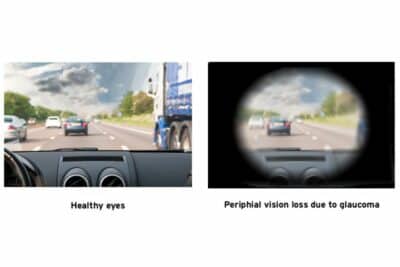
Did you know that cigarette smoking can serious health issues that can affect the eyes and cause eye disease? Despite these facts, more than 1 billion people worldwide continue to fuel their addiction for smoking.
Smoking and eye disease
When you smoke, there is an increased risk that you will develop an eye disease. These include, glaucoma, age-related macular degeneration, cataracts, diabetic retinopathy and dry eye syndrome. Diseases such as Glaucoma and AMD can be managed but stay with you for life, however, eye disease such as cataracts and dry eye syndrome can be treated.
How does smoking affect the eye?
There are about 4,500 chemicals in tobacco smoke which are toxic to humans. Arsenic, formaldehyde and ammonia are the chemicals that are transported to the delicate tissues of the eye through the bloodstream, where they damage the structure of the cells.
Glaucoma
Glaucoma is a group of eye diseases caused by a build up of pressure within the eye. The more pressure, the more damage it causes, in particular with the optic nerve. Images are relayed from the eye to the brain along optic nerve impulses, which means glaucoma often results in permanent vision loss and even blindness.
Smoking-related Glaucoma Symptoms
A common symptom between glaucoma patients and heavy smokers are the thinning of the retinal nerve fibre layer (RNFL). A study comparing the RNFL with non-smokers and smokers displayed the difference in the layers, and thus, proving that smoking does correlate with the thinning of the layer.
Age-related macular degeneration
Smokers are almost 3 times as likely to develop AMD and is a major contributing factor to early development of AMD. Macular Degeneration is the leading form of legal blindness and severe vision loss in Australia, responsible for over 50 percent of all blindness. The macula is the central part of the retina, the light sensitive tissue at the back of the eye.
The tar in cigarette smoke can lead to a buildup of ‘drusen’ which is detected through an eye test with an eye care professional. This determines the early onset of Macular Degeneration which is why it is important to have an annual check up with an optometrist.
Cataracts
Cataracts are the clouding of the eye lens which causes blurred vision. Smokers are twice as likely to develop cataracts. The only way to remove cataracts is by having surgery, other wise you will have severe vision loss. To prevent this from occurring, your best chance is to quit smoking or never start.
Diabetic Retinopathy
Diabetic retinopathy is caused by damage to the blood vessels in the tissue at the back of the eye (retina). If you have poorly controlled blood sugar, this could be a risk factor for the disease.
If you have higher blood pressure, this can have an affect on your eyes and blood vessels within the retina (retinopathy).
Symptoms of diabetic retinopathy
The role of smoking as a potential risk factor for diabetic retinopathy has been established in patients with type 1 diabetes. The following symptoms include: floaters, blurriness, dark areas of vision and difficulty perceiving colours.
Dry Eye Syndrome
A study conducted at a University in Turkey found that tobacco smoke breaks down the lipid layer of tear film, leading to dry eye symptoms. If you decide to quit smoking, your symptoms should reduce over time. However, to define the cause and how to manage your dry eyes, it would be a good idea to book an appointment with your local optometrist.
Are you ready to quit yet?
If this blog post hasn’t taught you enough about the effects smoking has on your eye health, then we would be shocked! As some of these diseases can lead to blindness eventually, it is so important to consider making lifestyle changes which will benefit you in the long run.
Are you noticing some changes in your vision?
If you are noticing changes in your vision that appear to be more than general deterioration of your eyes, then it is best to book an appointment to have a discussion with the optometrist and undertake any testing required to sort out your symptoms.





